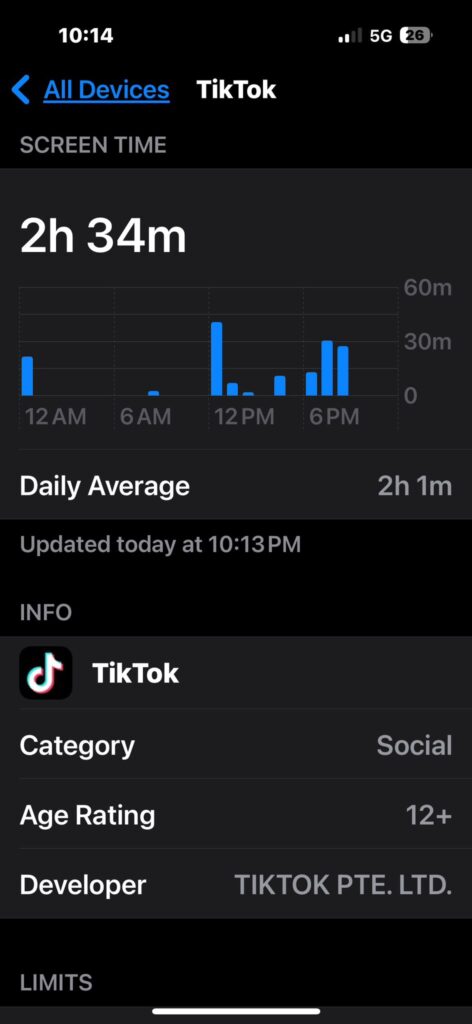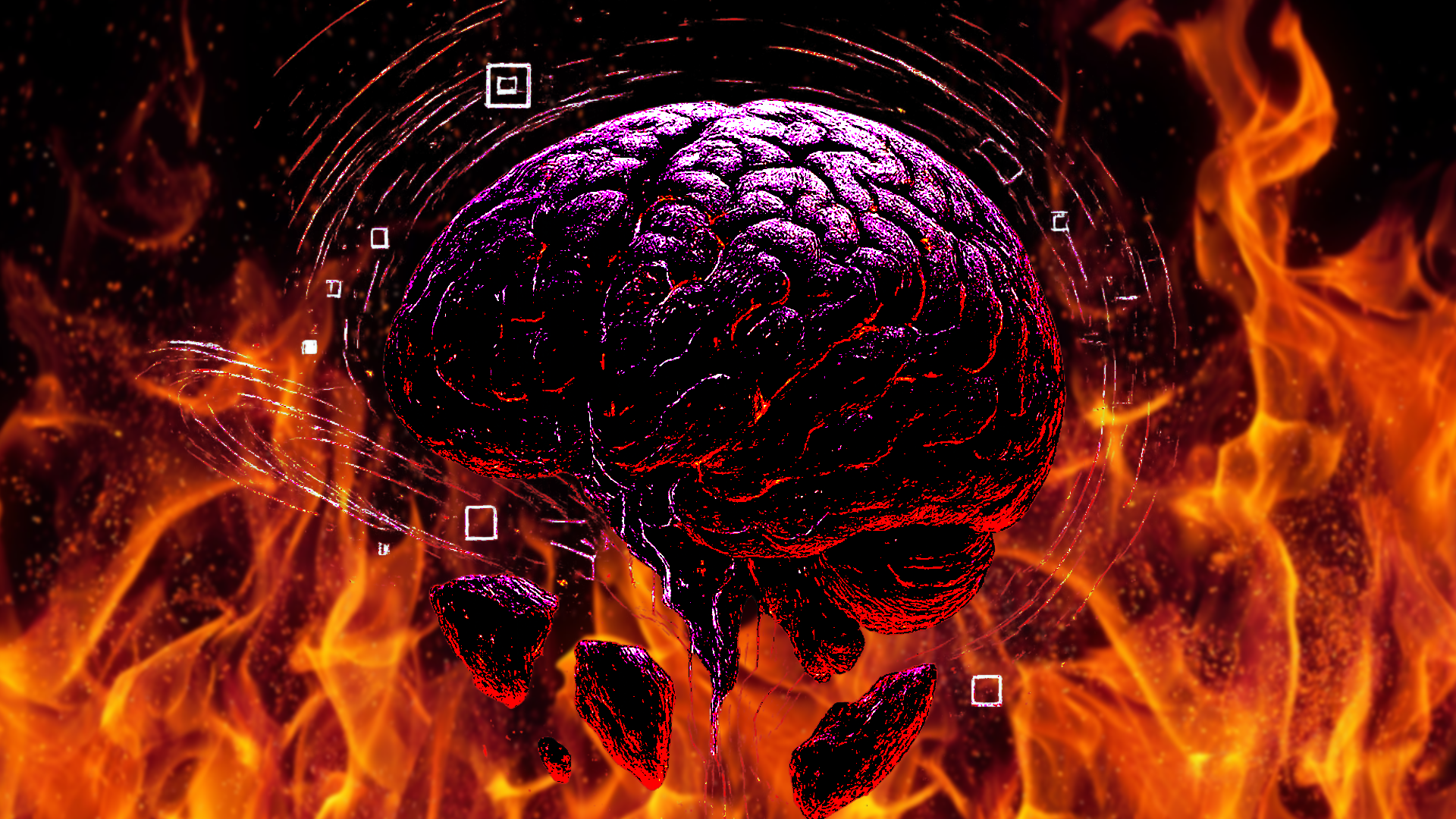The Hidden Burnout of Endless Scrolling
Read:
- The Poisonous Outcome of Short-Form Content – Part 1: A Hijacked Reward System
- The Poisonous Outcome of Short-Form Content – Part 2: A Hijacking in Real Time
- The Poisonous Outcome of Short-Form Content – Part 3: Intrusive Thoughts and Mental Imagery Pollution
- The Poisonous Outcome of Short-Form Content – Part 4: How It Shows Up in Your Day-to-Day
- The Poisonous Outcome of Short-Form Content – Part 5: Ideological Echo Chambers and Identity Hijack
- The Poisonous Outcome of Short-Form Content – Part 6: How to Detox, Rewire, and Return to Clarity
Introduction
For the past year or two, I have noticed that my mind has been scattered, I experience intrusive imagery, and my ability to concentrate or complete minor tasks has increased. While this has not affected my overall life, it has impacted it in an undesirable way.

After researching and going down many well-cited and researched rabbit holes, I discovered how short-form content radically poisons the mind and rewires the brain. Because of this, I have eliminated TikTok and will not watch short-form content again.
I realize that the genie is out of the bottle and can’t be put back. However, we can make individual choices to keep our brains and minds healthy.
After eliminating short-form content and being more purposeful with the long-form videos I watch (I don’t binge-watch a series anymore), I can tell that my “inner man” is healthy again.
This six-part blog series is meant to inform you of the dangers of this media style and binge consumption. It will also help you by giving you steps to detox your mind and do a mental reset, as well as giving you habits to move forward.
You don’t even realize you’re tired until the screen goes black.
It’s late. The lamp light is soft. You told yourself you were just going to check Instagram for a few minutes. Then maybe see if anything new is on your For You page. Just one more scroll. One more laugh. One more gasp.
Hours vanish.
And when the feed finally ends or your battery dies, you’re left staring into nothing—but your mind is still racing, buzzing, restless. It feels like your thoughts have been pulled apart and scattered like glitter in a storm.
You don’t feel refreshed. You don’t feel inspired. You feel…numb. Foggy. Maybe even agitated. Like your soul is jetlagged and your brain forgot what it was doing before all this began.
Welcome to the hidden burnout of endless scrolling.
The Brain on Short-Form Content: A Hijacked Reward System
Apps like TikTok, YouTube Shorts, and Instagram Reels don’t just entertain. They manipulate your neurochemistry.
Each swipe delivers a shot of novelty. Unexpected content. Emotional extremes. Tiny, fast, unpredictable rewards—all of which fire up your brain’s dopamine system. That’s the same system involved in motivation, reward, and addiction (McGonigal).
But dopamine doesn’t equal happiness. It equals craving. Anticipation. And when you binge these platforms, you flood the system, forcing it to down-regulate. The result? You feel dull and depleted once the stimulation stops. Like crashing after a sugar high.
And worse: the more often you binge, the harder it becomes for your brain to find pleasure in slower, quieter, real-world activities.
Attention Fractured, Focus Shattered
Your brain wasn’t built to switch gears every 10 seconds. But that’s what short-form content demands.
Each video resets your context. One moment it’s a comedy clip, the next a political rant, then a dance, then a disturbing confession. This rapid context-switching disorients the prefrontal cortex—the part of the brain responsible for executive function, decision-making, and self-regulation (McGonigal).
You begin to train your mind not to finish thoughts, not to follow ideas through, but to constantly seek the next new thing. Over time, this weakens your capacity for deep work, reading, even simple conversation.
Your attention span isn’t just shorter. It’s fractured.
Mental Imagery Pollution
If you’ve ever closed your eyes after scrolling and seen flashes of violent, sexual, or emotionally jarring imagery—you’re not alone.
Short-form feeds often include emotionally intense content, even without your consent. The brain, especially the amygdala, is wired to latch onto threat-related or high-arousal information. This leads to cognitive priming: when certain types of imagery repeat, they infiltrate your subconscious and rise uninvited into your mental imagery and dreams (McGonigal).
You end up with a mind that feels overrun by content you didn’t choose—or didn’t want.
Why It Feels Like “Nothing Matters” Afterward
As dopamine levels crash and executive function fatigues, the world can feel emotionally flat.
This is partly because your baseline has shifted. After consuming high-intensity content for hours, normal life stimuli—a walk, a book, a meal—feel underwhelming.
This detachment can mimic symptoms of mild depression: anhedonia (loss of pleasure), apathy, and low-grade anxiety. It doesn’t necessarily mean something is wrong with you. It means your brain is exhausted from trying to keep up with artificial stimulation cycles.
What Makes This Different from TV or Movies?
You might wonder, why does short-form content fry my brain more than a two-hour movie?
Because movies and long-form stories give your brain time to process. They use narrative coherence. Emotional build-up. They reward sustained attention.
Short-form content does the opposite: it hijacks attention, floods emotion, skips context, and denies narrative closure. It’s not designed to tell stories. It’s designed to addict.
You Weren’t Built for This Pace
None of this is your fault. Your brain is doing exactly what it was designed to do: prioritize novelty, detect emotional signals, and reward pattern recognition.
The problem is that short-form platforms weaponize these ancient mechanisms.
They override your internal compass, your sense of time, even your sense of self. And the price isn’t just lost time. It’s lost clarity, lost focus, and a steady erosion of your emotional equilibrium.
But awareness is power.
And this is just the beginning.
Works Cited:
- McGonigal, Kelly. The Willpower Instinct: How Self-Control Works, Why It Matters, and What You Can Do to Get More of It. Avery, 2012.
- Clear, James. Atomic Habits: An Easy & Proven Way to Build Good Habits & Break Bad Ones. Avery, 2018.
- Google/MTM and Neuro-Insight. Why We Watch: Indispensability White Paper, 2024.
Read:
-
- The Poisonous Outcome of Short-Form Content – Part 1: A Hijacked Reward System
- The Poisonous Outcome of Short-Form Content – Part 2: A Hijacking in Real Time
- The Poisonous Outcome of Short-Form Content – Part 3: Intrusive Thoughts and Mental Imagery Pollution
- The Poisonous Outcome of Short-Form Content – Part 4: How It Shows Up in Your Day-to-Day
- The Poisonous Outcome of Short-Form Content – Part 5: Ideological Echo Chambers and Identity Hijack
- The Poisonous Outcome of Short-Form Content – Part 6: How to Detox, Rewire, and Return to Clarity




